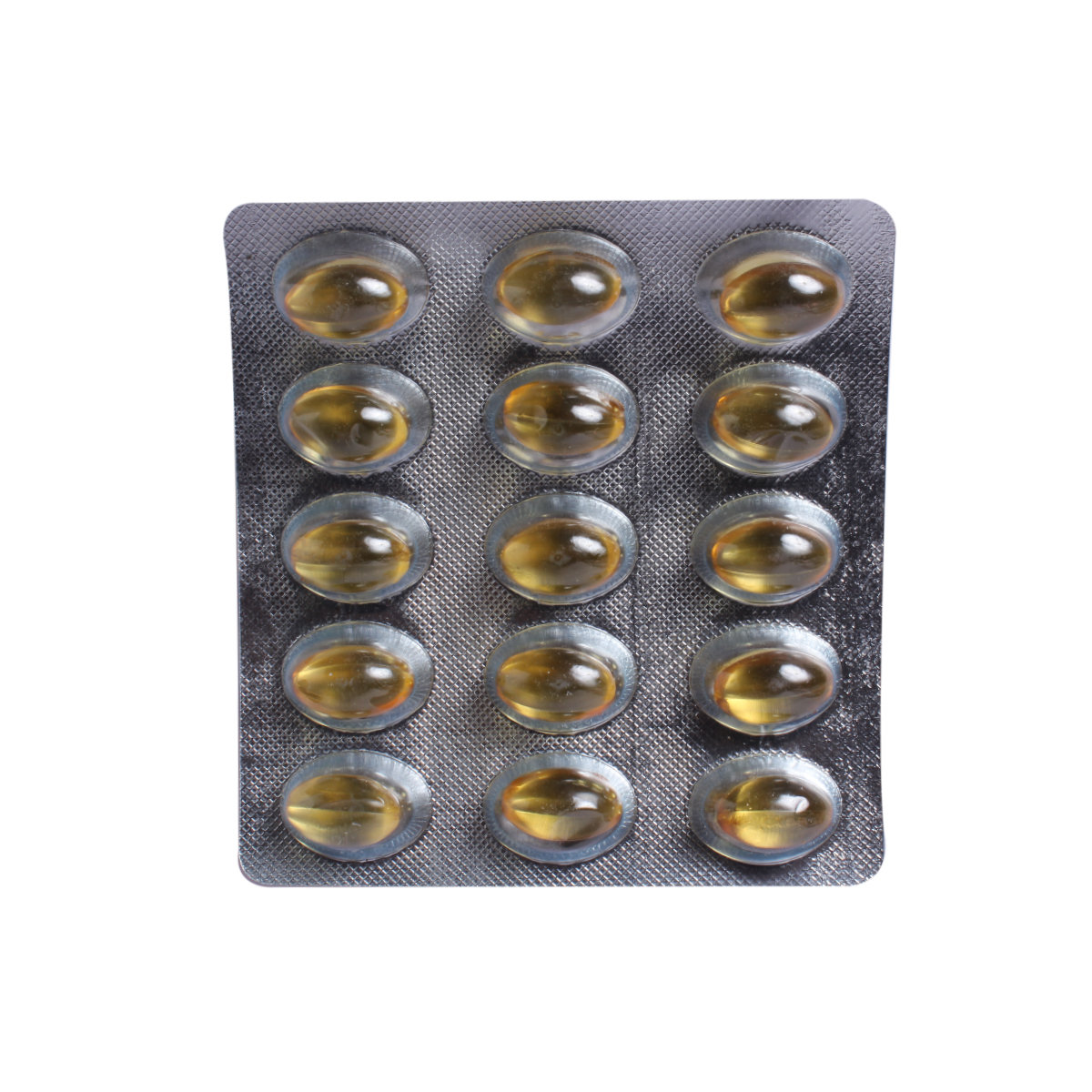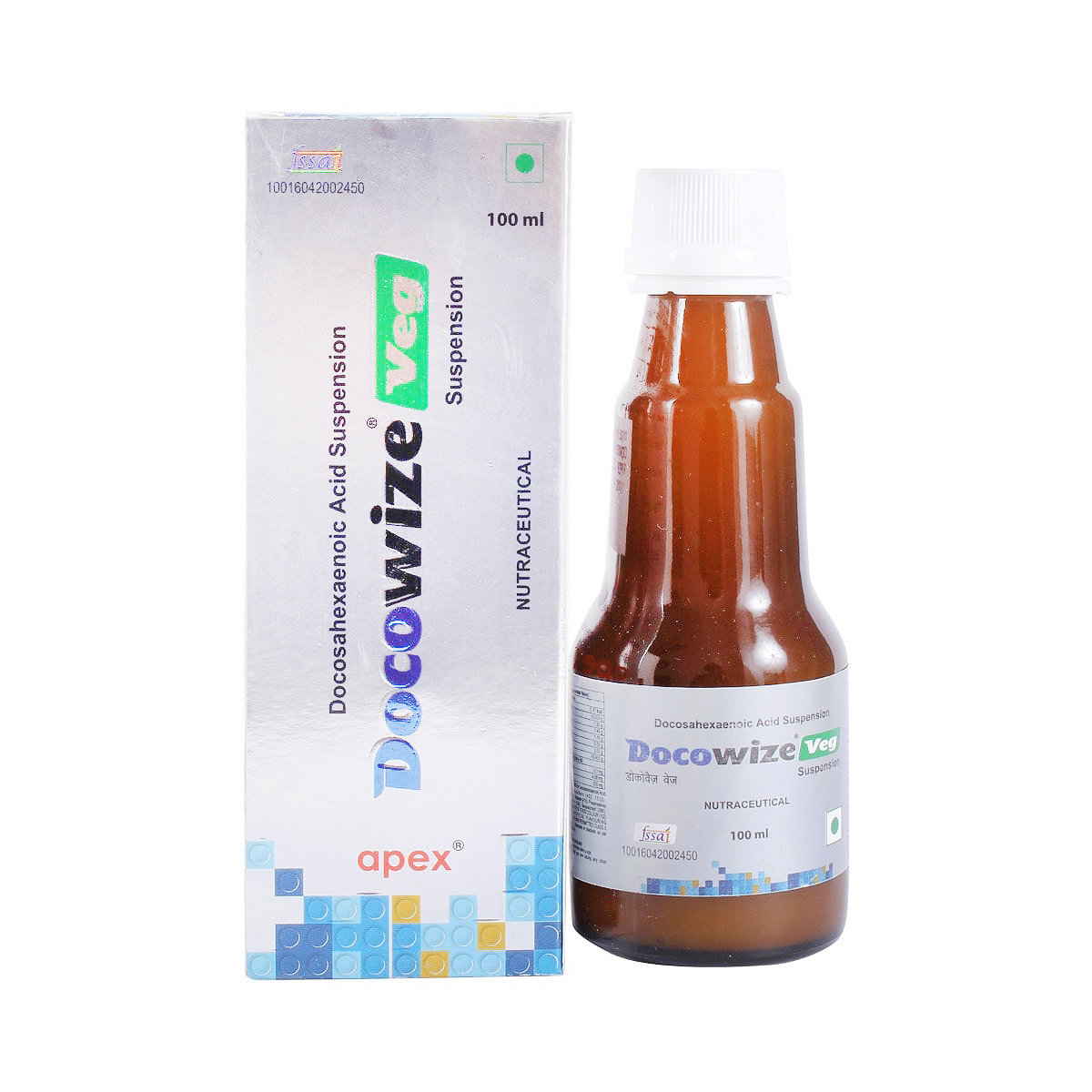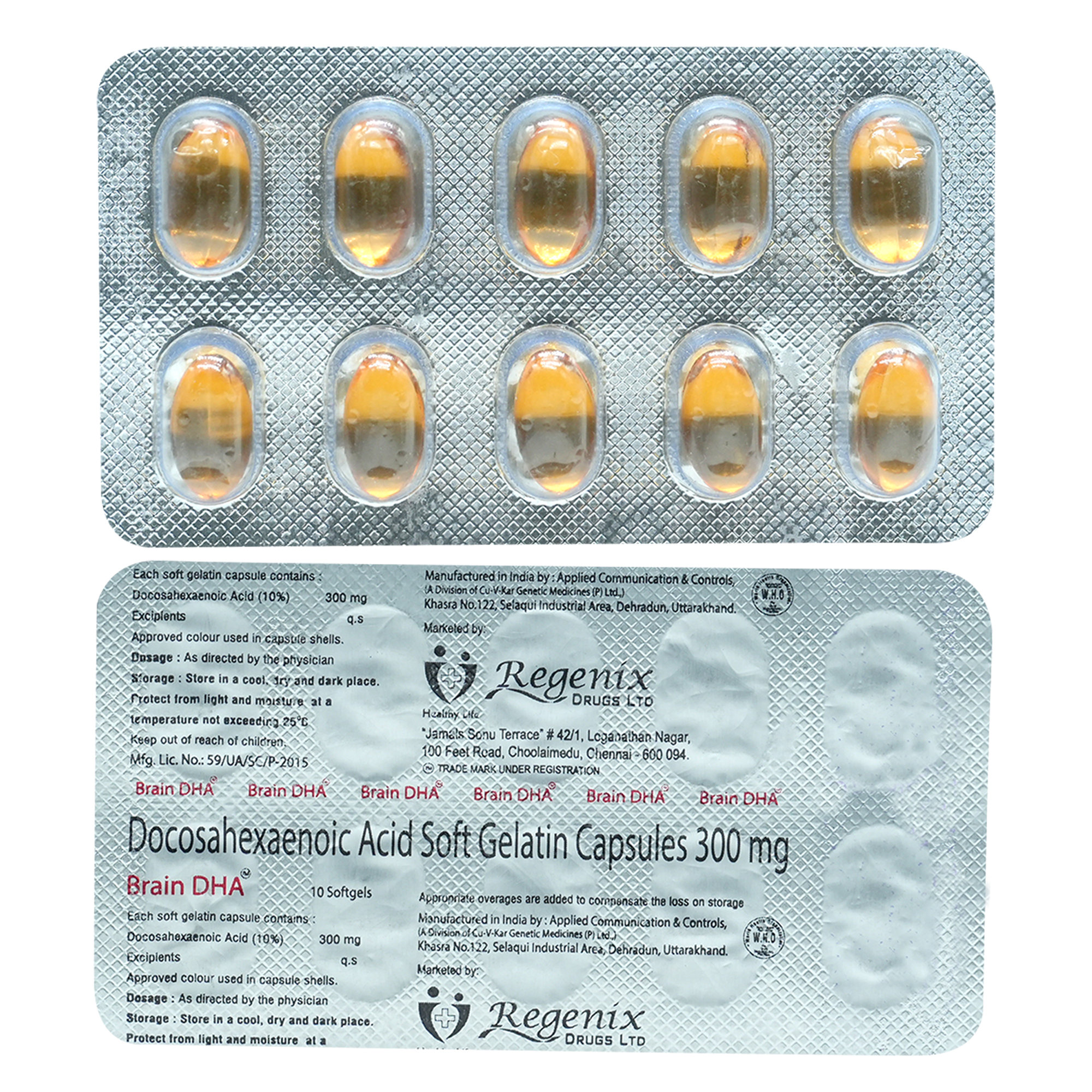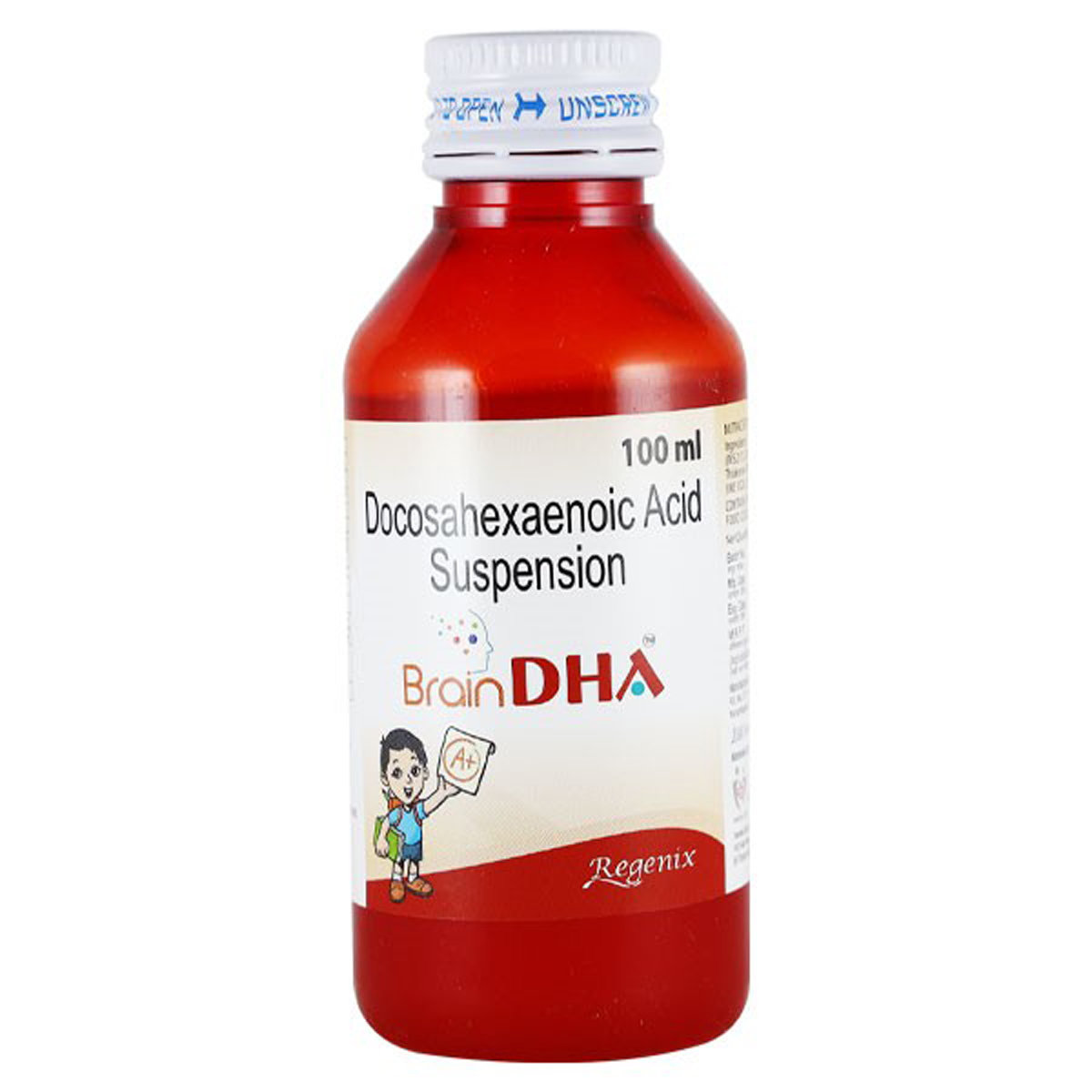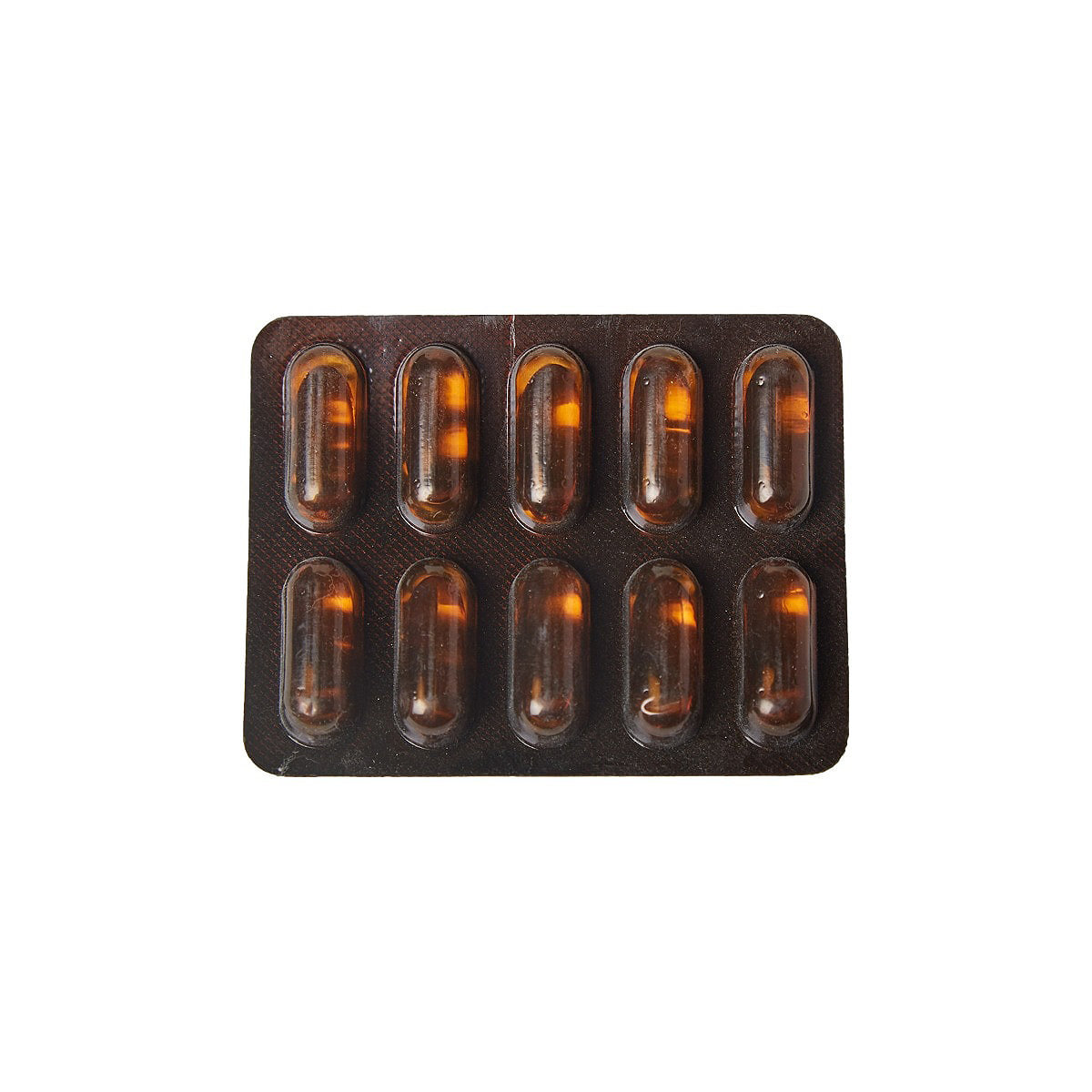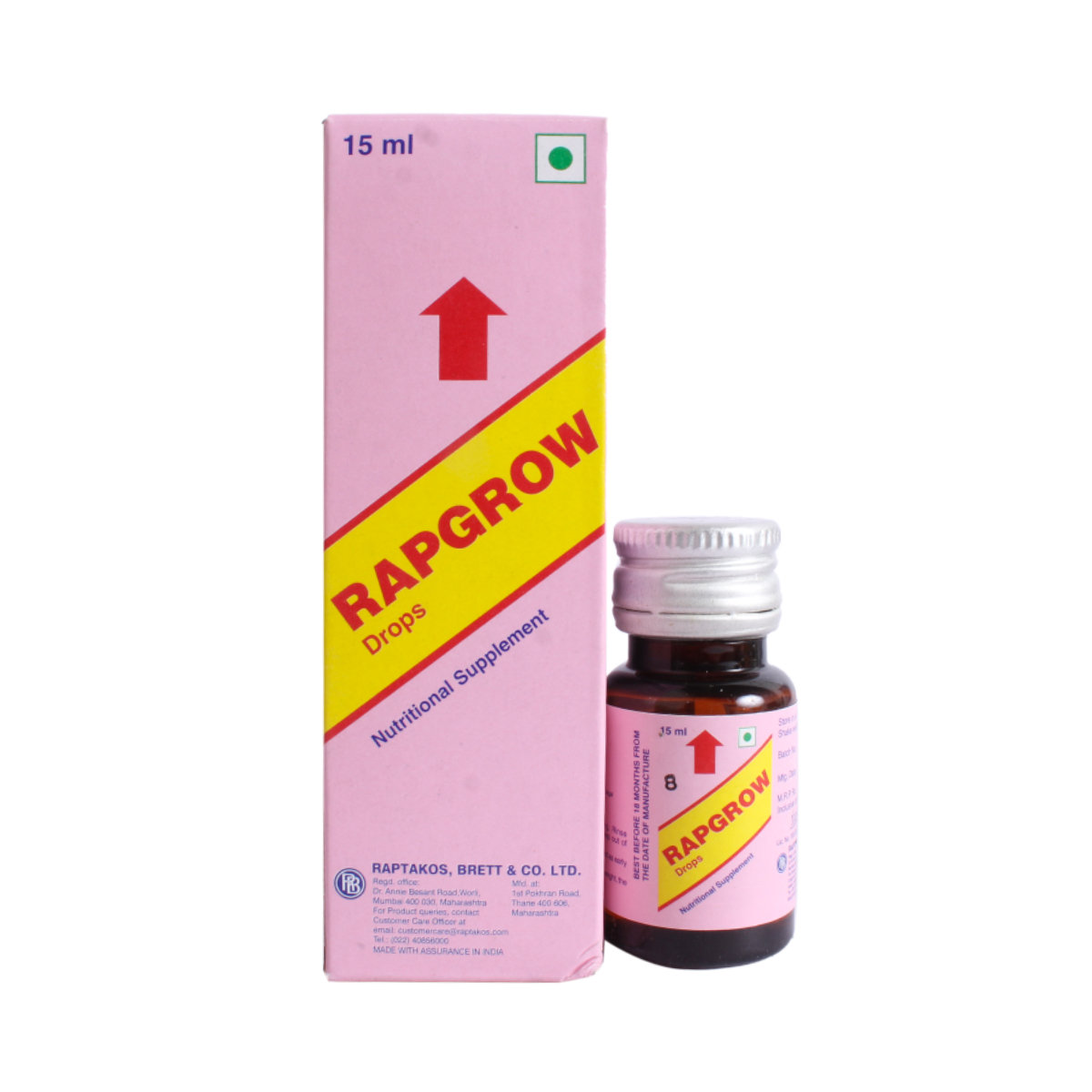Docosahexaenoic Acid
About Docosahexaenoic Acid
Docosahexaenoic Acid belongs to the class of medications called ‘antihyperlipidemic’ used to treat high cholesterol (hyperlipidemia) and heart diseases. It may also improve attention deficit hyperactivity (ADHD) (mental health disorder), reduces the risk of preterm births, reduces the risk of certain cancers, and delay the progression of Alzheimer’s disease (progressive memory loss) in older adults.
Docosahexaenoic Acid contains ‘docosahexaenoic acid’, which is an antihyperlipidemic agent. It is an omega-3 fatty acid and can reduce triglyceride levels and increase high-density lipoprotein (good cholesterol) levels in the body. This effect helps in reducing the risk of heart disease. It also has anticoagulant (decreases blood clotting) and anti-inflammatory (treats inflammation) properties. It helps in improving brain health and promotes the brain development of an unborn baby when used during pregnancy. It improves learning abilities when used in children.
Take Docosahexaenoic Acid as directed by your doctor. The common side-effects of Docosahexaenoic Acid are abdominal pain, bloating, nosebleeds, mild diarrhea, fatigue, skin irritation or burning, drowsiness, decrease in platelet count, and vitamin A and D toxicity. Bloating and diarrhea can be decreased if this medicine is taken with meals. Seek medical attention if these side effects do not go away or get worsen.
Do not take Docosahexaenoic Acid if you are allergic to docosahexaenoic acid or fish oils. It should be used with caution in patients with bleeding disorders and aspirin sensitivity. Before taking Docosahexaenoic Acid, inform your doctor if you have diabetes or high blood pressure. It is considered safe when used in children, pregnant, and breastfeeding mothers when consumed in recommended doses.
Uses of Docosahexaenoic Acid
Medicinal Benefits
Docosahexaenoic Acid contains ‘docosahexaenoic acid (DHA)’ which is an omega-3 fatty acid. It is naturally produced in the body and abundantly found in the brain and eye. It is also naturally found in breast milk. When given during pregnancy, it can promote brain and eye health in the fetus and also decreases the risk of premature delivery. It improves learning, performance, and memory in children. It is also available in infant formula preparations. In adults, it helps to fight against Alzheimer’s disease, heart diseases, and cancer.
Directions for Use
Storage
Side Effects of Docosahexaenoic Acid
- Abdominal pain
- Bloating
- Bleeding
- Mild diarrhoea
- Fatigue
Drug Warnings
Do not take Docosahexaenoic Acid if you are allergic to docosahexaenoic acid or fish oils. It should be used with caution in patients with bleeding disorders, aspirin sensitivity, diabetes, and high blood pressure. It is considered safe when used in children, pregnant, and breastfeeding mothers when consumed in recommended doses. Prolonged use of Docosahexaenoic Acid may increase levels of low-density lipoprotein (LDL), i.e. bad cholesterol. So, monitor LDL levels periodically during therapy.
Drug Interactions
Drug-Drug interactions: Docosahexaenoic Acid may interact with blood thinners (warfarin, clopidogrel, and aspirin) and slow down blood clotting. This medicine may also interact with medicines used to treat high blood pressure (captopril, enalapril, losartan, and valsartan, etc.).
Drug-Food interactions: No interactions found.
Drug-Disease interactions: Docosahexaenoic Acid should be used with caution in patients with bleeding disorders, diabetes, and high blood pressure (hypertension).
Drug-Drug Interactions Checker List:
Safety Advice

Alcohol
cautionAlcohol consumption may worsen the condition.

Pregnancy
consult your doctorDocosahexaenoic Acid is commonly recommended during pregnancy as a nutritional supplement. However, if you are pregnant, consult your doctor before taking this medicine.

Breast Feeding
consult your doctorDocosahexaenoic Acid is possibly safe when taken in recommended doses. However, if you are breastfeeding, consult your doctor before taking this medicine.

Driving
cautionDocosahexaenoic Acid may cause drowsiness. So, avoid driving or operating heavy machinery after taking this medicine.

Liver
consult your doctorIf you have liver problems, consult your doctor before using this medicine.

Kidney
consult your doctorIf you have kidney problems, consult your doctor before using this medicine.

Children
consult your doctorLimited information is available on the use of Docosahexaenoic Acid in children. Please consult your doctor for more information.
Habit Forming
Diet & Lifestyle Advise
- Prefer eating a meal that contains plenty of vegetables, fruits, and whole grains. Opt for non-fat dairy products and lean meats.
- Avoid greasy and processed foods. Avoid foods containing high sugars.
- Monitor your cholesterol levels regularly as advised by your doctor.
- Keep a check on your weight. Shed excess weight by exercising regularly.
- Do not take stress as it may show an effect on your eating habits.
- Quit smoking and limit alcohol intake.
Special Advise
- Docosahexaenoic Acid should be used with caution in patients with known hypersensitivity to fish and/or shellfish.
- Monitor liver enzymes like ALT and AST levels periodically during therapy.
Patients Concern
Disease/Condition Glossary
High cholesterol: It is the presence of high amounts of low-density lipoprotein (bad cholesterol) in the blood. This condition reduces the blood flow and increases the risk of heart diseases such as heart attack or stroke. It has no symptoms and can be identified only by performing a blood test.
Heart disease: It is also called cardiovascular disease. It is a condition in which blood flow to the heart is decreased due to various factors such as high cholesterol (builds up in the walls of blood vessels), narrowing of blood vessels, and blockage of the blood vessel by a clot.
Attention deficit hyperactivity disorder (ADHD): It is a chronic condition seen that causes hyperactivity and impulsive behavior. It often begins in childhood and may continue into adulthood.
Alzheimer's disease: It is a progressive memory loss disease in which brain cells degenerate and die.
FAQs
Docosahexaenoic Acid contains 'docosahexaenoic acid' which is an omega-3 fatty acid. It reduces triglyceride levels (cholesterol) in the body and reduces the risk of heart disease. It promotes brain and eye health. It also fights against inflammation.
Docosahexaenoic Acid is essential for brain development in infants. So, it is usually recommended for pregnant women and children. It also helps in the normal functioning of the brain in adults.
The recommended dose of Docosahexaenoic Acid is 250 to 300 mg per day. However, do not take this medicine without consulting your doctor. Your doctor decides the dose and duration based on your health condition.
Docosahexaenoic Acid is generally recommended for longer durations as this medicine takes at least six weeks to 6 months to show its effects.
It is a chronic condition seen that causes hyperactivity and impulsive behaviour. It often begins in childhood and may continue into adulthood.
Docosahexaenoic Acid may improve fertility when taken in recommended doses. However, consult your doctor to decide what to take to improve fertility based on your health condition.


